Reshma McClintock, adoption reform activist and founder of Dear Adoption, came to Denver on a recent Saturday. She was here for a special screening of a documentary that follows her inner and outer journey toward integrating pieces of her identity. That film is called Calcutta Is My Mother, and I recommend seeing it.

If you’ve ever listened to an adoptee explain their decision to search for the beginnings of their story, chances are you’ve heard them start with the disclaimer, “Don’t get me wrong. I love my parents. They are wonderful people. I just want to know more about me.”
The disclaimer seems necessary because historically, the adoption narrative has been crafted largely by adoptive parents. We are the ones who benefited from adoption, and our feelings are the ones our sons and daughters sometimes feel the need to protect.
Often at the expense of their own.
Are Adoptive Parents that Fragile?
It’s a question adoptive parents should sit with. Can we look beyond the narrative of “forever family” — which can mean only ONE set of legitimized parents?
Can we move instead toward a more adoptee-centric narrative? “I crave my history. Even the early chapters that don’t include you. Because it’s the Story of Me.”
Reshma explains in the film that for a long while she thought her life began at the PDX airport. Why? Because that’s where the story began for her parents. Her parents were telling the story from their viewpoint (as do parents by biology); nothing wrong with that.
Because she showed up at PDX at three months of age, and because she also existed and was nurtured in someone’s womb prior to that, Reshma was missing the early chapters of her story. She knew they were there, and she wanted her full story. She set out to get as much of it as possible, and she allowed a film crew to document it.
But to take on her quest, Reshma needs to explain to everyone — over and over again — that she loves her parents. That her search doesn’t negate them. That her search doesn’t mean she felt disconnected from them, unloved by them, or anything less than love FOR them. She’d like us all to understand it’s not about them.
Can adoptive parents hear that? Integrate that? Accept that? Journey on alongside our sons and daughters with a sense of security rather than fragility?
I feel we must. We must allow for the prevailing adoption narrative to evolve from “happily ever after” to “it’s complex.”
A Brady Bunch Comparison
I caught an early Brady Bunch episode that same Saturday while channel-surfing for something not sports. Those who remember the iconic series know that such sitcoms were designed to entertain, not to mirror real life. Widowed dad of three marries a divorced mom of three and they live happily ever after in 30 minute increments (even with 6 in a bathroom!).
Anyone who has ever been in a blended family or known a blended family knows that the Brady Bunch glossed over the hard parts. We knew it wasn’t real.
But with adoption, people are more likely to buy into the happily-ever-after plot line and less likely to consider that in reality there would be complexities stemming from loss.
What loss? Well…
- the loss of original parents and change of identity (adoptee)
- the grief of a childectomy (first parents)
- the mourning of possible infertility struggles or miscarriage/stillbirth/infant death (adoptive parents)
Within the realm of adoption, though, recently we have begun to see more realistic stories that do not gloss over the hard parts and do delve into the deeper issues. To wit, the film Lion and the NBC series This is Us, both of which are attuned to the adoptee point-of-view. (This is Us consults with a transracial adoptee to make sure to get it right).
Calcutta Is My Mother joins this collection of getting into the nitty-gritty.
What I Hear When I Listen
When I hear adoptees make their disclaimers, when I am invited to understand their journey to find their complete story, what I hear Reshma McClintock and others say is this:
“Don’t ask me to choose between my love for you and my need to know myself.”
In their narrative, adoptees get to have both.
As it should be.
~~~~~
Check out the trailer and more thoughts on Calcutta Is My Mother in my article on MileHighMamas.com.
See Also
- Rights of an Adoptive Parent
- Adoption On Screen
- The Future of Adoption
- The Happy/Sad of Adoption
- “You Don’t Look Adopted”
- Healing Journey of a Transracial Adoptee
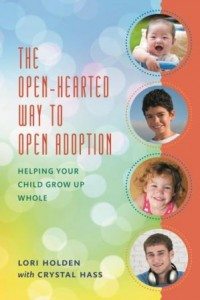
Lori Holden, mom of a young adult daughter and a young adult son, writes from Denver. She was honored as an Angel in Adoption® by the Congressional Coalition on Adoption Institute.
Her first book, The Open-Hearted Way to Open Adoption: Helping Your Child Grow Up Whole, makes a thoughtful anytime gift for the adoptive families in your life. Her second book, Standing Room Only: How to Be THAT Yoga Teacher is now available in paperback, and her third book, Adoption Unfiltered, is now available through your favorite bookseller!
Find Lori’s books on her Amazon Author page and catch episodes of Adoption: The Long View wherever you get your podcasts.

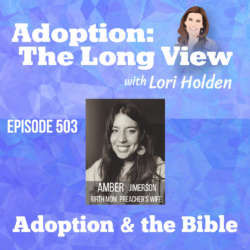
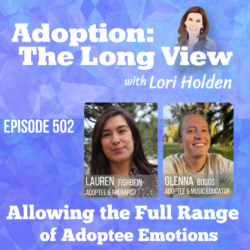
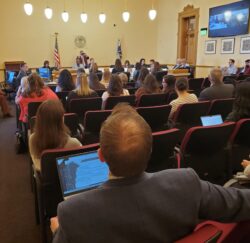
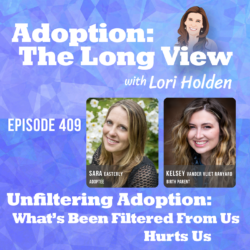
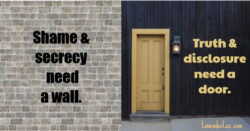
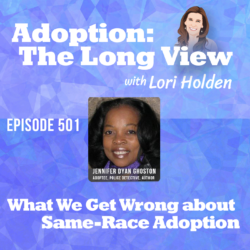
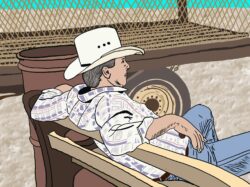
5 Responses
As an 52 year old adoptee that didn’t start working on grieving my loss from adoption until I turned 48, I thank you for this article. I didn’t ask questions of my adoptive family for fear of betrayal or being disloyal.
You get it.
I am a birth mother who has seen this struggle from the perspective of my son who chose to find me and had to not only deal with and struggle with his own feelings, but also the grief and feelings of fear from his adoptive parents. Balancing feelings of loyalty to his parents and his desire to have a relation with his birth mother and half siblings has been very difficult for him. I have decided not to put any guilt or pressure on my son. Our relation will be what he wants it to be and I am good with that. I feel blessed to be included in his life.
Stellar post! I gave up a long time ago offering the required I love my mom and dad disclaimer. If people are that shallow, it doesn’t matter how carefully I couch my words, they still won’t hear the message woven in.
Cheers.
So one interesting point is that we totally get the idea of an adoptee-centric narrative on the other end. We expect our kids to grow up and create an adulthood for themselves that will exist mostly outside of our influence. Isn’t it so interesting that we’re comfortable with that story if the person becomes the center of their story down the road vs. talking about the time before we entered the picture?
I need to see this! And absolutely, our kids need to have the space to question and search without us being in their way or them feeling like they need to apologize.